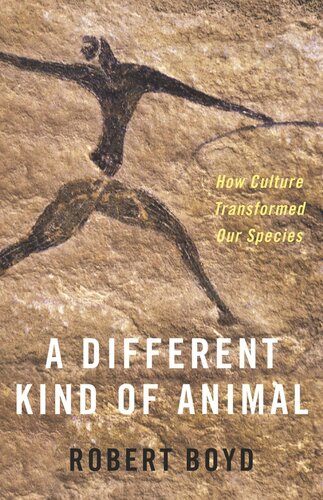

Most ebook files are in PDF format, so you can easily read them using various software such as Foxit Reader or directly on the Google Chrome browser.
Some ebook files are released by publishers in other formats such as .awz, .mobi, .epub, .fb2, etc. You may need to install specific software to read these formats on mobile/PC, such as Calibre.
Please read the tutorial at this link: https://ebookbell.com/faq
We offer FREE conversion to the popular formats you request; however, this may take some time. Therefore, right after payment, please email us, and we will try to provide the service as quickly as possible.
For some exceptional file formats or broken links (if any), please refrain from opening any disputes. Instead, email us first, and we will try to assist within a maximum of 6 hours.
EbookBell Team

4.0
46 reviewsHow our ability to learn from each other has been the essential ingredient to our remarkable success as a species
Human beings are a very different kind of animal. We have evolved to become the most dominant species on Earth. We have a larger geographical range and process more energy than any other creature alive. This astonishing transformation is usually explained in terms of cognitive ability—people are just smarter than all the rest. But in this compelling book, Robert Boyd argues that culture—our ability to learn from each other—has been the essential ingredient of our remarkable success.
A Different Kind of Animal demonstrates that while people are smart, we are not nearly smart enough to have solved the vast array of problems that confronted our species as it spread across the globe. Over the past two million years, culture has evolved to enable human populations to accumulate superb local adaptations that no individual could ever have invented on their own. It has also made possible the evolution of social norms that allow humans to make common cause with large groups of unrelated individuals, a kind of society not seen anywhere else in nature. This unique combination of cultural adaptation and large-scale cooperation has transformed our species and assured our survival—making us the different kind of animal we are today.
Based on the Tanner Lectures delivered at Princeton University, A Different Kind of Animal features challenging responses by biologist H. Allen Orr, philosopher Kim Sterelny, economist Paul Seabright, and evolutionary anthropologist Ruth Mace, as well as an introduction by Stephen Macedo.